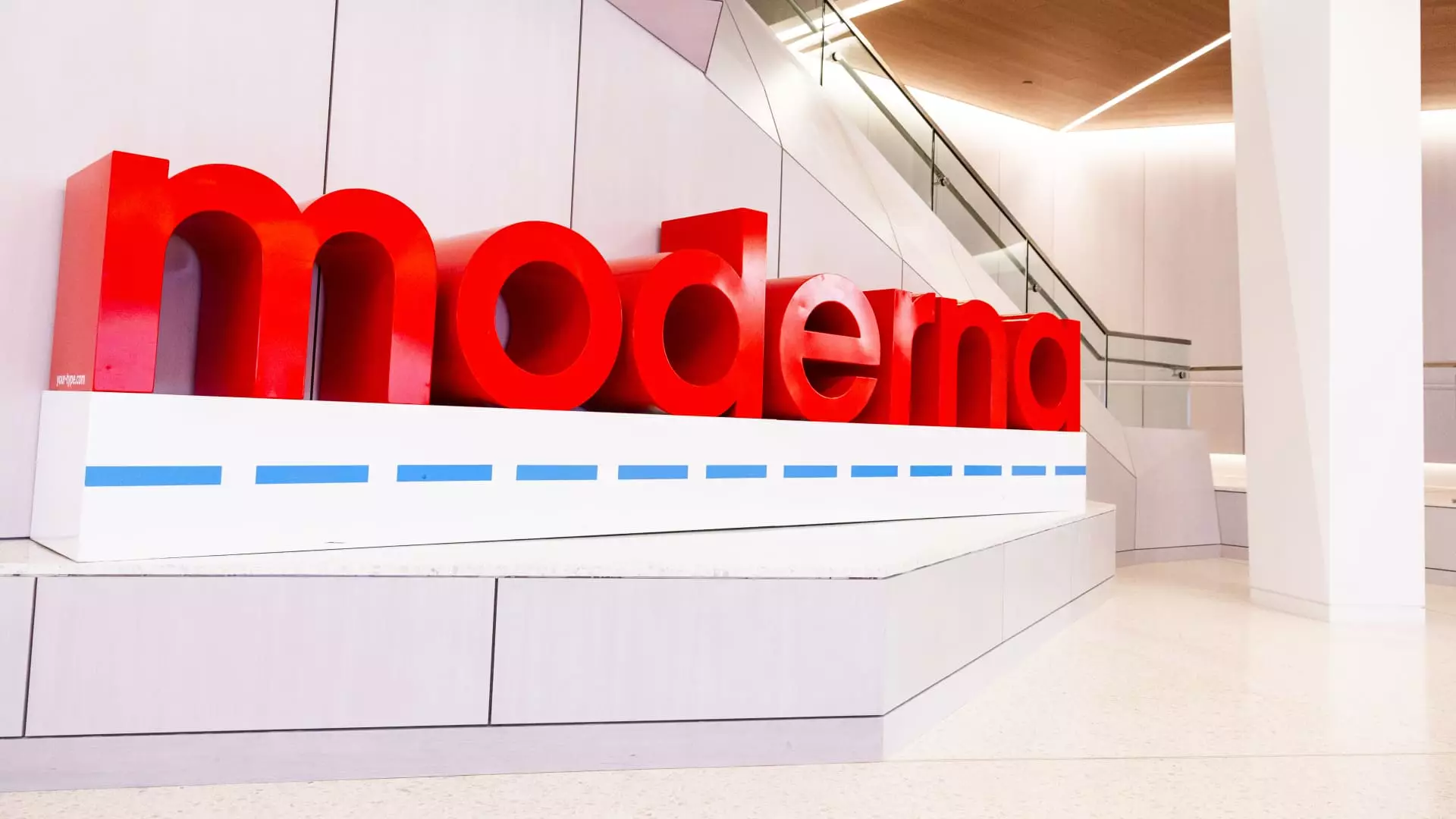Moderna Inc.’s recent financial disclosures reveal significant challenges as the biotech company grapples with the aftermath of its once-thriving COVID-19 vaccine business. On the surface, its fourth-quarter revenue of $966 million surpassed analysts’ expectations, yet the company reported a substantial net loss of $1.12 billion, equivalent to $2.91 per share. This contrasts sharply with the previous year, when Moderna enjoyed a net income of $217 million, or 55 cents per share. Such stark figures suggest a company in distress, attempting to navigate a turbulent market with diminishing demand for its flagship product.
Despite the disappointing losses, Moderna has taken strides toward operational efficiency. The company successfully reduced its costs by 27% compared to the prior year. This is a notable achievement, yet it also points to a harsh necessity rather than a proactive strategy. With plans to further slash costs by an impressive $1 billion by the end of 2025, the urgent need to tighten financial belts raises compounding concerns about the sustainability of its business model moving forward.
The crux of Moderna’s troubles lies in the dwindling demand for its COVID-19 vaccine. The latest quarter saw vaccine sales plummet by 66%, generating only $923 million compared to $2.8 billion in the same period of the previous year. Analysts had anticipated sales closer to $909 million, highlighting the growing uncertainty surrounding vaccine uptake. Factors like declining vaccination rates and fierce competition in the marketplace have created a precarious situation. Furthermore, Moderna’s previously successful advance purchase agreements with various countries are now being phased out, further exacerbating this decline.
CFO Jamey Mock expressed concerns about the Covid landscape, emphasizing the company’s reliance on sales forecasts tethered to eventual recommendations from the Centers for Disease Control and Prevention. This reliance on external guidance leaves Moderna in a precarious position, exposing it to market fluctuations not entirely within its control.
In light of these challenges, Moderna is pivoting its focus toward a robust product pipeline aimed at revitalizing its business. The company has ambitious plans to obtain 10 new product approvals in the next three years, signaling a commitment to innovation and diversification. Moderna has already submitted three mRNA products for regulatory approval, including a next-generation COVID-19 vaccine and a combination vaccine targeting both COVID and flu—a strategic move that showcases its efforts to expand beyond its established COVID-19 foundation.
Particularly promising is the reception of its respiratory syncytial virus (RSV) vaccine, which generated $15 million in U.S. sales during the most recent quarter alone. The RSV product is Moderna’s only other approved product aside from its COVID-19 vaccine, and it has been well-received, achieving higher-than-expected sales of $13 million.
However, while the company navigates rigorous regulatory processes and diverse product offerings, it must also contend with escalating research and development costs. The decline of its COVID-focused R&D expenditures, attributed to ongoing projects in flu and other vaccine programs, illustrates a broader strategic shift that may require time to yield significant returns.
Market Sentiment and Stock Performance
The broader market response to Moderna’s fourth-quarter performance speaks volumes about investor sentiment. With shares plunging over 4% in premarket trading and down more than 20% year-to-date, confidence in the company’s trajectory appears shaken. The stark juxtaposition of unmet earning expectations and dwindling market viability indicates a loss of faith among investors who once viewed Moderna as a leader in medical innovation.
Changing dynamics in the COVID-19 vaccine landscape—marked by general vaccine fatigue and evolving public health needs—are significant factors influencing stock volatility. Analysts now question whether Moderna can regain lost momentum in a market saturated with alternatives, particularly if demand continues to wane for its COVID-19 product while it endeavors to establish new revenue streams.
In sum, Moderna finds itself at a critical juncture in its corporate journey. As it seeks to innovate and diversify its offerings in the aftermath of the COVID-19 pandemic, the immediate future is fraught with challenges, from shrinking revenue streams to intense market competition. Lessons learned from its robust COVID-19 operation will undoubtedly inform its strategic pivots moving forward, yet the path to recovery and reinvigoration remains uncertain. The relentless pace of change in the biotech industry, compounded by fluctuating consumer demand, underscores the necessity for agility and resilience in Moderna’s operations as it endeavors to redefine its market position.

